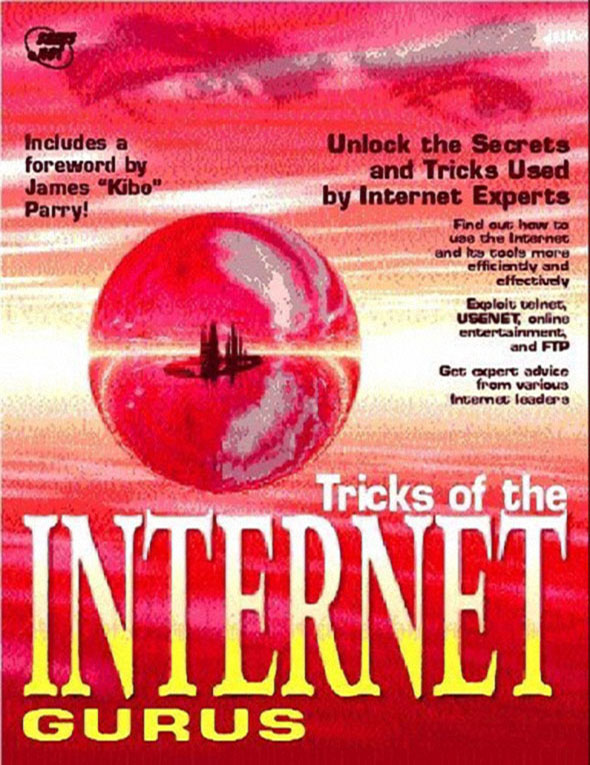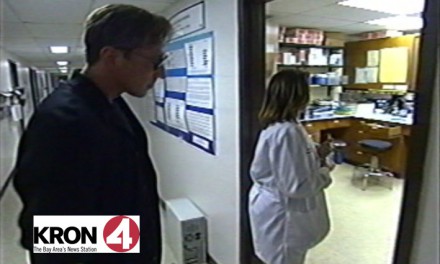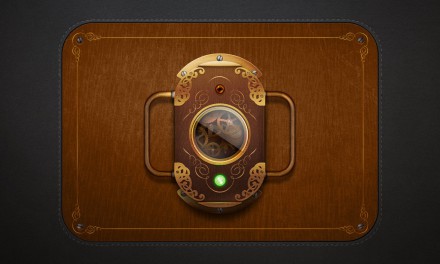
Internet Gurus: Patrick Kroupa
by Tod Foley
“The correct solution to the ‘quest,’ is, of course, that there is no solution. There is nothing you are looking for, except for you, and once you realize this, you win the big prize, you find yourself and get to live happily ever after. “
–from Voices In My Head: MindVox Overture, by Patrick Kroupa
Baud rate, password, dial-up, shell, upload, download, emulation, and “Warez,” — these are just a few of the interrelated concepts that must be borne in mind by even moderately experienced Internet users. To be sure, the power and “user-friendliness” of available lnternet services increase monthly by leaps and bounds, but with all this conceptual overhead going on, it can be easy to forget the real goal of all this connectivity: human interaction. Technology aside, the Internet can be viewed as one of the largest social experiments ever deliberately attempted; and on this human level, even the most experienced Net gurus can always stand to learn a few tricks.
Patrick Kroupa, also known as “Lord Digital,” is a widely respected hacker who first rose to prominence in the computer underground during the early eighties. Patrick eventually “burnt out” on the hacker lifestyle, an event that ultimately caused him to question the very meaning of his existence. After a self-imposed exile of several years, he began to devise positive uses for his acquired skills — moving on to found MindVox the popular New York-based BBS and Internet Service Provider. His biographical essay “Voices In My Head: MindVox Overture” is a Net Classic.
TF: You’ve been through a lot of different phases in your years of association with the Net: from Hacker (definitions l and 2, from systems cracker, to the classic version of hacker) to Lord, to Exile, to System Operator and SysAdmin. Through these phases, your definition of the Net itself must have changed; what you did online, what you were looking for. How did you begin?
PK: Well, I kind of drifted in and out during the late ’70s, before going all the way into wonderland in 1980, when a bunch of us got together at one of the first AppleFests up in Boston and formed the Apple Mafia, and this ended up becoming the prototype for pirate groups for years to come… It was all pretty silly, but I was 12 years old! We ended up being this kind of group whose members were spread out all over the United States, and we were doing these mostly incomprehensible things with computers and lightning-fast, 300-baud modems, where we’d interact with each other in this kind of underground never-neverland where we all became like these characters out of a comic book… The whole vibe was really like just walking into an adventure game, the feeling of opening this door and finding something behind it, which wasn’t too terribly clear yet. There was just this rush, partly because of the fact that some of what we were doing was illegal, though at the time almost nothing except for piracy would actually qualify, since there had yet to be any major arrests, and people — even the minority who owned computers at the time — were for the most part utterly oblivious about what any of this stuff was; I mean, modems were not common household items just yet.
TF: What did the Apple Mafia do?
PK: Mostly we started running boards to keep in touch with each other, since systems provided a kind of means of expression. Conference calls and bridges did the same sort of thing with who could pull the most interesting prank at the moment, but it was very temporal and not lasting — not to mention basically a destructive kind of anarchistic trip, whereas what was to become cyberspace was a much more positive manifestation; creatively acting out…
TF: In Voices you mention how the release of the movie WarGames in the early eighties caused the online world to undergo its first major wave of attention. What was it like back then, to be a hacker?
PK: Basically it was like having knowledge of this secret universe, where only a small number of people could go at the time. …It was pretty much evenly broken up between teenagers and a lot of very colorful older ’60s dropouts and phone phreaks, who were coming at this from a totally different angle, since a lot of them had been hacking around with the phone companies’ networks for years using boxes. Basically, they were flying blind and they weren’t doing too much, so conferences and bridges provided this entire social strata for them. And when we arrived on the scene, it all got blended together for the first time.
TF: Another thing you bring up in Voices is the tremendous power you and your comrades held at your fingertips through the mid-eighties; the awareness that you could create large scale chaos as easily as most people pick up a phone… When did the initial feeling of “adventure” or “exploration” give way to the feeling of “power,” and what caused this shift to occur?
PK: Well, exploration tends to be more of a solitary, personal thing — “hacking,” to give the particular kind of exploration a name. But when you overlay a social structure on it and add that layer of depth into the picture, it becomes something else altogether. Speaking directly for myself — though, in this respect I know my experience is very similar to many of my friends’ from that time — it was kind of exhilarating to have this place where you could have actual power that reached out into the real world. Because at that point in your life, you basically don’t have too much control over your life, or what choices you’re making — all of that tends to be limited by your age — but in cyberspace that doesn’t matter. You end up with the same kind of scene that exists in the rest of the world: cliques, groups, competition… and you want to get status. At the point where your desire for status and power outweighs the motivation you have to explore and learn… then you’ve made that shift, and crossed over the line.
In actuality you cross over that line and go back and forth, dozens, perhaps hundreds of times, in all kinds of different situations, and have quite a few kind of slam-in-the-face moments of realization where you wake up and go, “Hey, wait a minute-what am I doing?” and realign your priorities.
Eventually you get the strength to break out of the negative side of that, when you attain some level of self-esteem, and realize that all of it is a big mindgame; you are whatever you think yourself to be, and it doesn’t so much matter whether or not you’re in the Legion of Doom or whatever. Of course it doesn’t hurt to spend a few years being “elite” — to have that soothe your ego and make you calm down and get over that kind of awkward phase in your life when you’re unsure about everything.
TF: Without giving away any incriminating evidence, could you explain the sort of things that went on during this “elite” stage?
PK: Oh man… so many things. See, at this time when I was about 13 I started going to TAP for the first time. TAP was this off-shoot of YIPL, Abbie Hoffman’s technological-kind-of-yippie-newsletter; basically this was the tail-end of the meetings, just before they’d break up forever. TAP was still being published, and we’d walk in, and there would be these guys like Ian Murphy, who just stole a couple hundred thousand worth of computer equipment, got a slap on the wrist, and turned all of it into a lucrative career… All of it was happening in a kind of self-contained universe, and for all the real-world possibility, none of it actually seemed real. It wasn’t like you’d get a gun and walk into a liquor store; it was playing these clever little games, and the rush came from just being able to do this… Very few people ever got any sort of tangible profit out of this stuff at that stage of their lives.
The obvious benefits were infinite free phone calls, and free software of every imaginable variety; various types of credit fraud were always taking place… One of the hacker groups I was a member of eventually broke up because at that time, a certain credit agency had some interesting weaknesses, and various unnamed people were generating fake credit reports for companies that were really just mail drops — they suddenly found themselves with hundred-thousand-dollar lines of credit at their disposal. But most of the fraud that went on could be summed up as the kind that took place over a telephone, with little or no physical contact at any point in the event, and a lot of stuff that sort of fell under the guise of playing games — like winning radio contests, being able to get tickets for concerts because you could control a PBX or switch, being able to find out who was calling who, being able to listen to people’s phone conversations, basically having the ability to kind of make most people’s lives transparent and available for your perusal — sort of playing god. Now, if you think about it, there is obviously the possibility to make huge sums of money that way, but mostly none of us really thought about it; it was just the rush of being able to play god more than any real benefit.
TF: Eventually this whole lifestyle started to wear thin for you. Was this just a matter of getting older, or was there some specific incident that catalyzed your change of attitude?
PK: More than anything it was a combination of all these things. I don’t think there was ever any one, single “event” — at this point in time — that caused some great change to take place, or made me wake up and reexamine things. A better way to relate it is probably a series of events, accumulating over time and my own awareness of them changing as I saw the same things happen over and over, leading to a very subtle and gradual shift from the mindset that I held onto for a period of years during that time.
If there was any one single realization at this time that made me “wake up” more then any other, it was coming to the understanding that most of what we’d been doing in the past was a type of initiation, growing process, that had to lead to other things — staying active in that type of environment, holding those beliefs, tends to close off most possible paths, and puts the focus on becoming a professional criminal — which is basically the job you’re best suited for, with the subset of skills that you’ve spent the last few years cultivating. Because creating something… writing, developing new software, using your talents in a positive way — has very little to do with the mindset that you’re holding on to, when you’ve active in the hacker underground. That sort of headspace is not conducive to very much except developing a sense of persecution, and an extremely well-developed denial mechanism that allows you to rationalize almost any action you might be taking — no matter how far it’s veered away from “exploration.”
Basically it was just coming to the understanding that for me personally, there wasn’t too much left to learn here that could have a positive impact on me, and it was time to move forward — which at the time was much less smooth than the way I’m presenting it right now. It was rough, and all these things didn’t come together quite as simply as when I look at it in retrospect.
TF: Did you publicly announce your upcoming departure from Net society?
PK: No, I didn’t make any announcements. I simply became less and less active, until one day I sort of noticed that days had become weeks, had become months, since the last time I had done much anything online. There’s actually a pretty funny phenomena that seems to be somewhat localized to 3l!te PirAcy/HacK1ng/FreQk1ng; it’s called “Retirement Notice Syndrome,” and basically amounts to a desperate plea for more attention. For some reason, people who take the time to write ofttimes extremely long and angry “retirement notices” rarely seem to retire. If anything, there is a sharp increase in that person’s online activity as they spend a lot of their previously free time answering questions from all their friends about what the deal is, and where their head is at. In very few cases does the retirement notice lead to retirement.
TF: What made you want to come back?
PK: There wasn’t really a conscious decision to “return” to anything any more than there was one to “leave” or retire, in the first place. It was more along the lines of just getting back in touch with friends I’d known when I was deeply involved with all of this a few years back, and being sort of drawn back into the scene from a somewhat different angle. The people I’d known had all evolved in their own ways-or not at all, which I guess is a strange form of progression all in itself, being in your 20s or 30s and still hanging out in the underground. But mostly it was just taking a look at what “real people” were starting to do with all this stuff, and being kinda bored by what I saw happening, and wanting to see what could be done to put together something a little more interesting, which had the kind of atmosphere we used to live in back then-just without all the cODeZ, password files, and 0-day-old wAreZ. Which is a long way of saying: putting up a system which could be deemed cool in our own minds seemed like an appealing thing to do.
TF: You achieved a new level of fame and notoriety upon opening MindVox, which seemed to spring into success overnight-suddenly you’re in the pages of Mondo 2000, Wired, and other mags, you’re attracting subscribers from all over the world. …Was your transition back to e-life difficult?
PK: Umm. ..not really. It was pretty much the same thing we were used to in the past-which is being at the receiving end of a weird kind of confused adulation, or pretty violent hatred/anger, which is being focused your way by someone who usually hasn’t any idea of why exactly, except that you seem to stand for something which either strongly attracts or repels them.
What was strange and totally different was getting this kind of escalating level of attention from various media sources, which gradually became more and more mainstream, and seeing yourself in print without having the headline read “Computer Bust In New York.”
The biggest change for me personally was getting a lot of positive feedback from people who were real-life writers, who passed my writing around to a lot of their friends in the publishing and entertainment industry, and really provided a push in a direction that I’d been going in completely by accident before then. I’d never taken my writing very seriously, as anything more than a tool in the social engineering toolkit — which is where all my previous validation had come from. To realize that, hey… I could do this for real, was to me, something that was pretty amazing.
TF: It sounds like during your “exile” or “retirement” period you followed society’s advice and “got a life” <g>. This leads me to another question: despite the commonality of electronic communication these days, there still seems to be a sort of stigma associated with active participation in the cyberworld-the idea that no matter how immersive it is, it still isn’t living. For me, this a difficult topic to address: There’s no easy way to describe cyberspace to someone who doesn’t “get it,” but this doesn’t stop such people from analyzing my activities. …What about you? How did you reconcile these two lives into one?
PK: Well. in the past I wouldn’t say that I had a particularly healthy balance between my online existence and “having a real life!” They sort of were the same thing, and most of my close friends at the time, and people I spent my time with, were the same people I hung out with online.
Now, I think that in a lot of ways the old Greek dudes had a very complete concept of being a person. They had tremendous appreciation for physical strength, beauty, and ability, while at the same time creating a society which celebrated intellectual pursuits, arts, and philosophy. With many places that I have a bird’s-eye view of, or personal experience with, such as The WELL, MindVox, all these virtual communities coming together online, there is in effect a very real community of people who know one another in the flesh (often in more ways than one <laughing>).
They have parties, hook each other up with jobs, travel together, and in a way provide a kind of modern-day return to tribalism — which allows an often geographically scattered set of people (who may individually have been living a very disenfranchised and nomadic existence) this possibility of really belonging somewhere, which seems to be very lacking in the lives of many people at the tail-end of this millennium.
I think that’s pretty cool. It’s still not completely balanced, and people who have friendships and activities that do not see their entire beginning and continued existence with the benefit of one foot in cyberspace, are probably better off in various ways. But basically from my own experience, at least, I consider it extremely important to have some kind of daily physical existence where you go to the gym, ride a bike, rollerblade, whatever you do to have physical activity. I notice in myself that when I’m really working on something and completely immersed in it to the exclusion of everything else for a few days, I lose my perspective pretty fast and kind of cease to produce at what I would consider to be the best of my ability. But if you can just pull back from the machine for a while, go for a walk, hang out with your girlfriend or wife, or just do something that isn’t cyber-anything, then when you get back to it you are always gonna feel much more refreshed and have a better vibe going, then if you just lIvE in CyBersPace all the time.
TF: Oscar Wilde said, “He who lives more lives than one, more deaths than one must die.” In your time, you’ve gained, lost, and literally created entire worlds. How do you top that? What’s next?
PK: I move to Idaho, pick up the hobby of cross-breeding weasels with ferrets, and devote the rest of my life to watching daytime television.
Uhm… nah, actually that never seem to be a problem; there’s always something that is so fascinating that it reaches out and pulls you in, and then you play with it for awhile and see what happens.
There are so many things I’m interested in and want to experience and experiment with-much of this is in the direction of telling stories and bringing images and concepts to life. ..using whatever technology comes along and blurring the lines of medium and message as much as possible, to focus on what’s important. ..putting people into a state where they’re truly receptive to seeing, experiencing something that’s always inside them, but tends to come alive when you’re looking outside, and hearing a song, reading a story, seeing a film or exhibit.
Life is pretty amazing most of the time.






Recent Comments